When I reach adventure filmmaker Beau Miles at his home in Melbourne, Australia, it’s late January and he’s just a couple hours away from cracking his first can of beans.
Spilling the Beans With Beau Miles
That afternoon Miles embarked on a challenge to eat only beans until he consumed his body weight in legumes—all 85 kilograms. He expected the experiment, inspired by characters in John Steinbeck’s Tortilla Flat novel, to last 33 days.
Full of beans both literally and figuratively, Miles is a jack of many trades—sea kayaker, educator, ultra-runner and craftsman. His frank and quirky humour make his award-winning films—Africa by Kayak, Bass By Kayak Junk Paddle and A Mile an Hour—a hit with viewers of all types.
“Ideas are cheap, application is hard. I have a million ideas,
to make them come full circle is a lot of work.”
Junk Paddle is an 11-minute peek into Miles’ work as an outdoor education lecturer at Melbourne’s Monash University. It reveals his talent for building with reclaimed wood as he turns garbage into a gleaming treasure. Without getting preachy, the film inspires viewers to recognize opportunities for adventure on their own doorsteps.
Miles’ next film, The Commute, explores a similar theme—re-envisioning his 65-minute daily commute as a four-day, paddle-and-drag odyssey from farm to office. While we await its release this fall, Miles shares on filmmaking, lessons learned, and why everything can turn into an adventure with the right attitude.
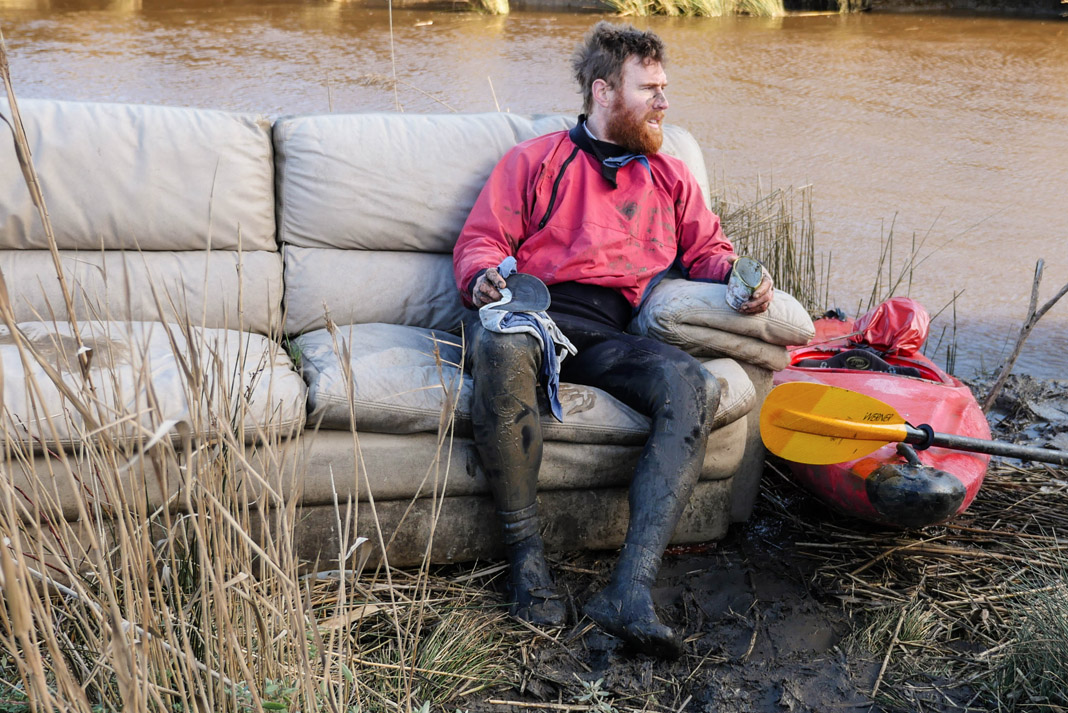
5 Questions for Adventure Kayaker Beau Miles
1 What is Junk Paddle’s message?
Well, it’s not really a film about making a paddle out of wood at all. To a lot of people, wood is a square product from the hardware store. I want to make those connections between tree and forest and this thing around us everywhere in a square form.
One of the key things about outdoor education is to teach people how we’re connected to the world. There’s huge potential in a bit of crap timber because it’s going to teach me how to make a paddle and then paddle me down a river. That’s outdoor ed.
2 Where did your paddle go next?
We’ve been doing this for eight years; the students spend six to eight weeks building a paddle from reclaimed wood, then use it to paddle 150 kilometres down Australia’s biggest river—the Murray River. They make some ugly ones, and they make some beautiful ones. In many ways, I’ve got the easiest job in the world. By the end, the students feel like I’ve given them a paddle, but they’ve done all the work.
3 When do you put down the camera?
Sometimes I hate filmmaking because it loses the now. You’re in the moment and enjoying yourself and then you have to change the camera perspective or the lens. But when you’re filmmaking versus just on an expedition, it’s a very different process. On some trips, I do leave the camera at home. You have to live your story sometimes and not just film it.
4 Why is good filmmaking so difficult?
Ideas are cheap, application is hard. I have a million ideas, to make them come full circle is a lot of work. Junk Paddle is a nice little film and it might be one of 100 I make, but it was still hard to find the story. It was a 10-second idea, filmed over three or four days but finding the narrative, that’s what is hard. Show me insight, show me something vulnerable. 20 years of making films, and I think I’m finally starting to show some story.
5 Who gave you the most memorable feedback?
After crossing the Bass Strait, between Australia’s mainland and Tasmania, I was working on my Ph.D., “The Secret Life of the Sea Kayaker.” The most poignant feedback I received was: “Beau, you think adventure is inherently good and hard, and yet it’s not inherently good and it’s not hard.”
“A nine-to-five job is hard, and it’s mundane and repetitive. Putting food on the table is hard. What you do is exclusive and privileged, and it’s often fun and simplistic.” That was a very different perspective than I was used to. Junk Paddle and The Commute tap into asking questions about our everyday lives instead of focusing on exclusive adventure.
“I’ve been going full-tilt for four days. Swamps, oceans, rivers, creeks—it’s the full spectrum of adventure and all between the lands of home and work,” says Beau Miles in The Commute. | Feature Photo: Courtesy of Beau Miles

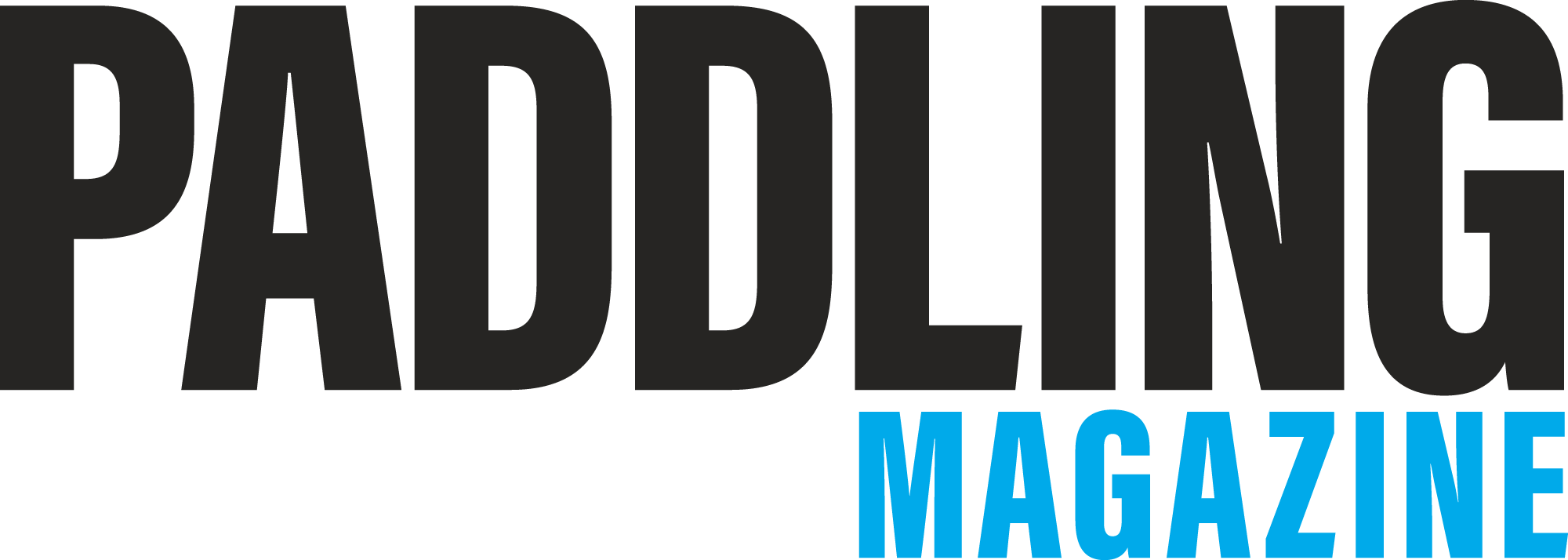

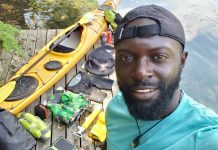
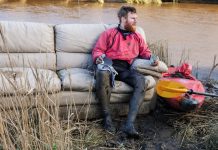
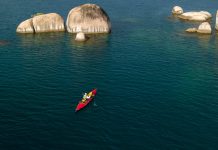
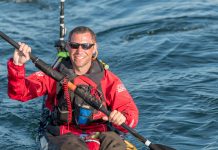
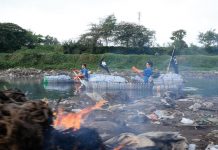

I really enjoyed this article. I enjoyed it not just for what it made me ponder on an early Sunday morning, but because through it I realized I wanted to know more about who this man was. I searched out his YouTube channel and watched some of his films. He is inspiring, to say the least. Thank you for sharing Beau with us. I look forward to learning more about outdoor education, kayaking, and leading a good and simple life from his example, thanks to your short article.